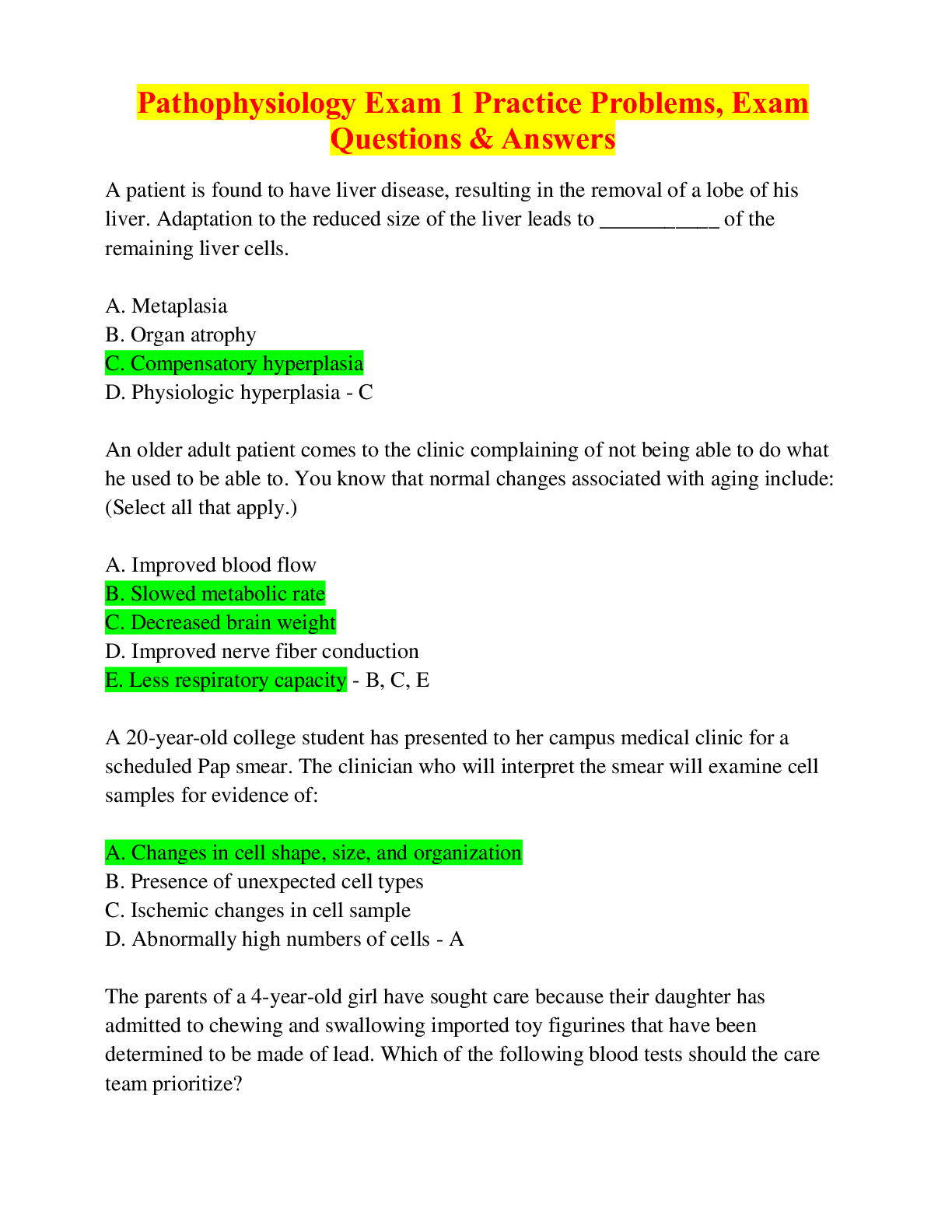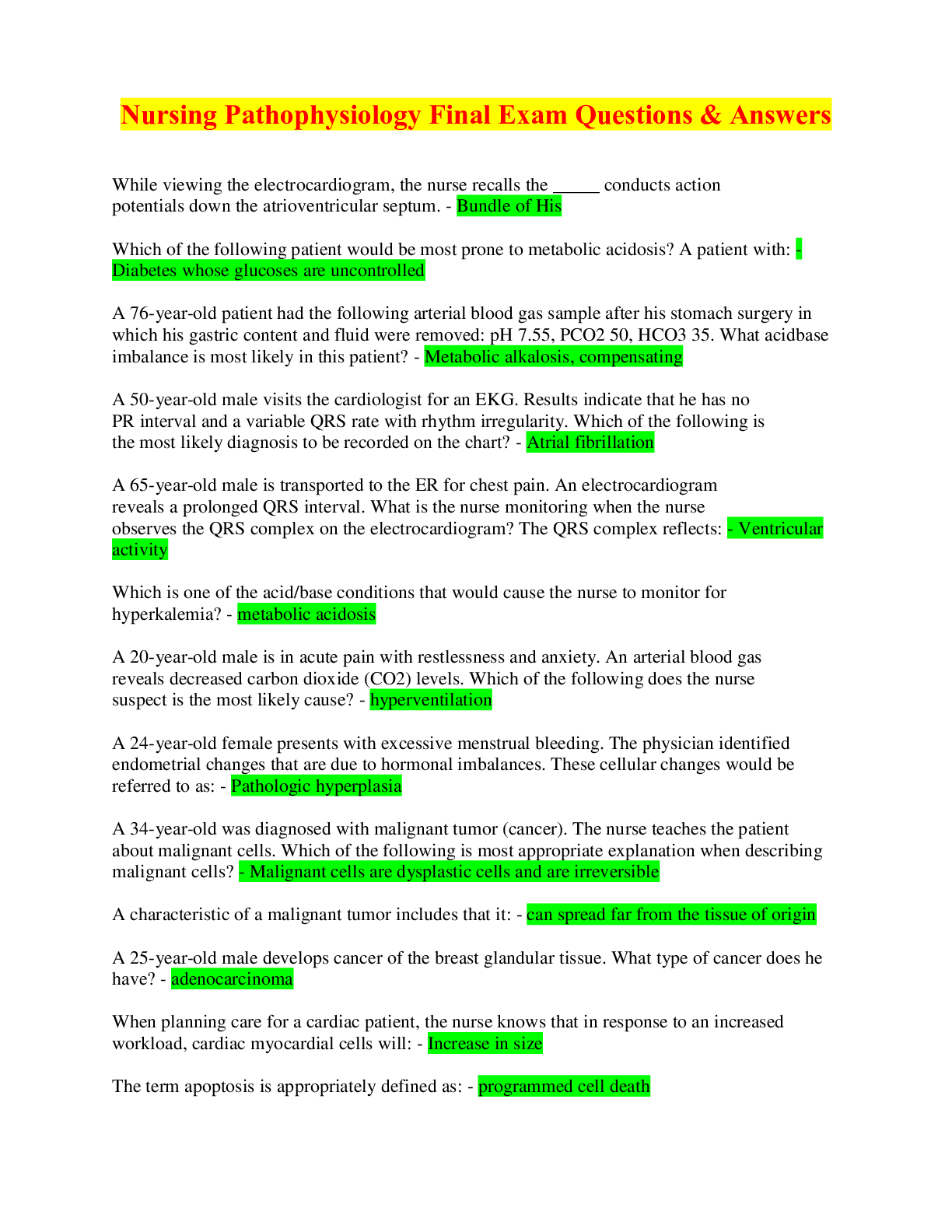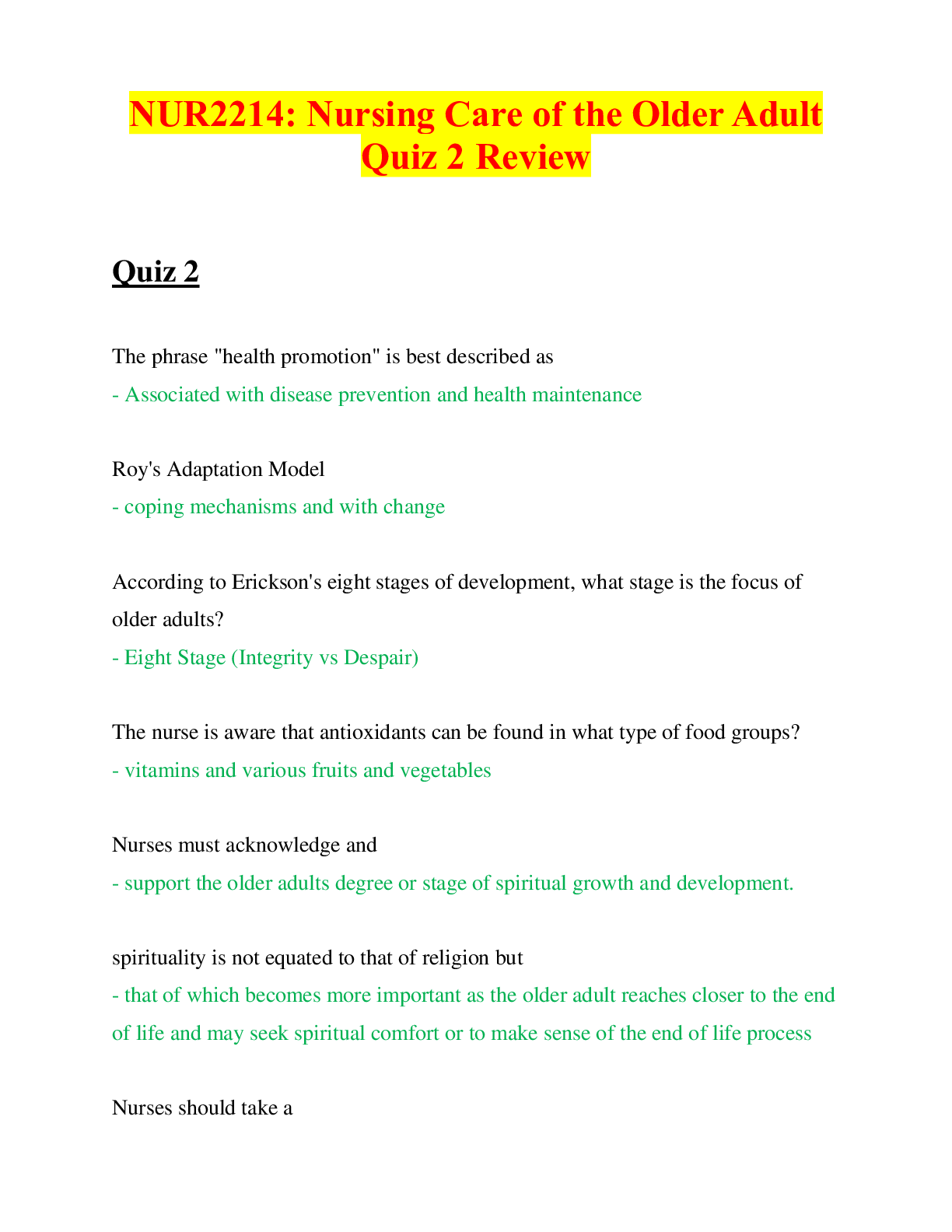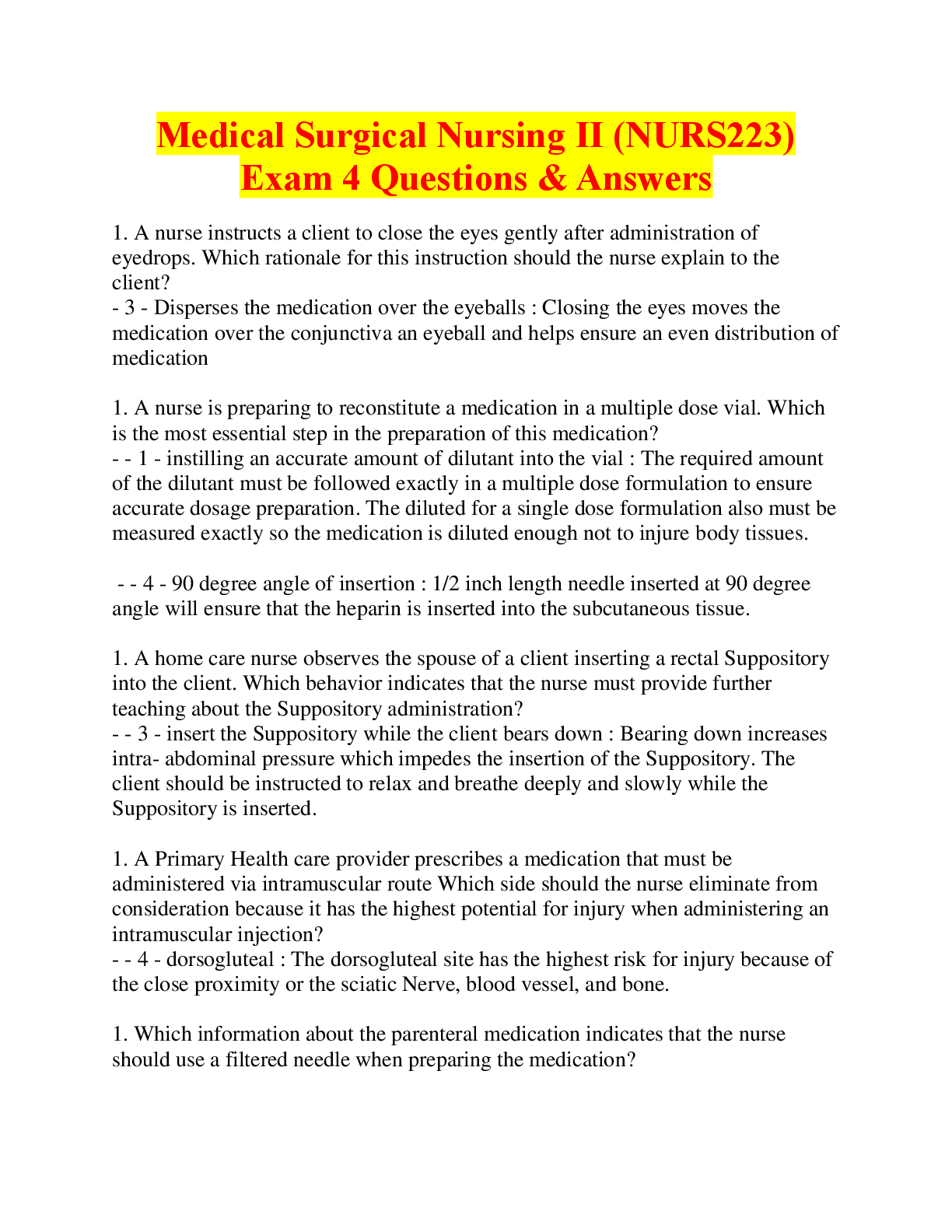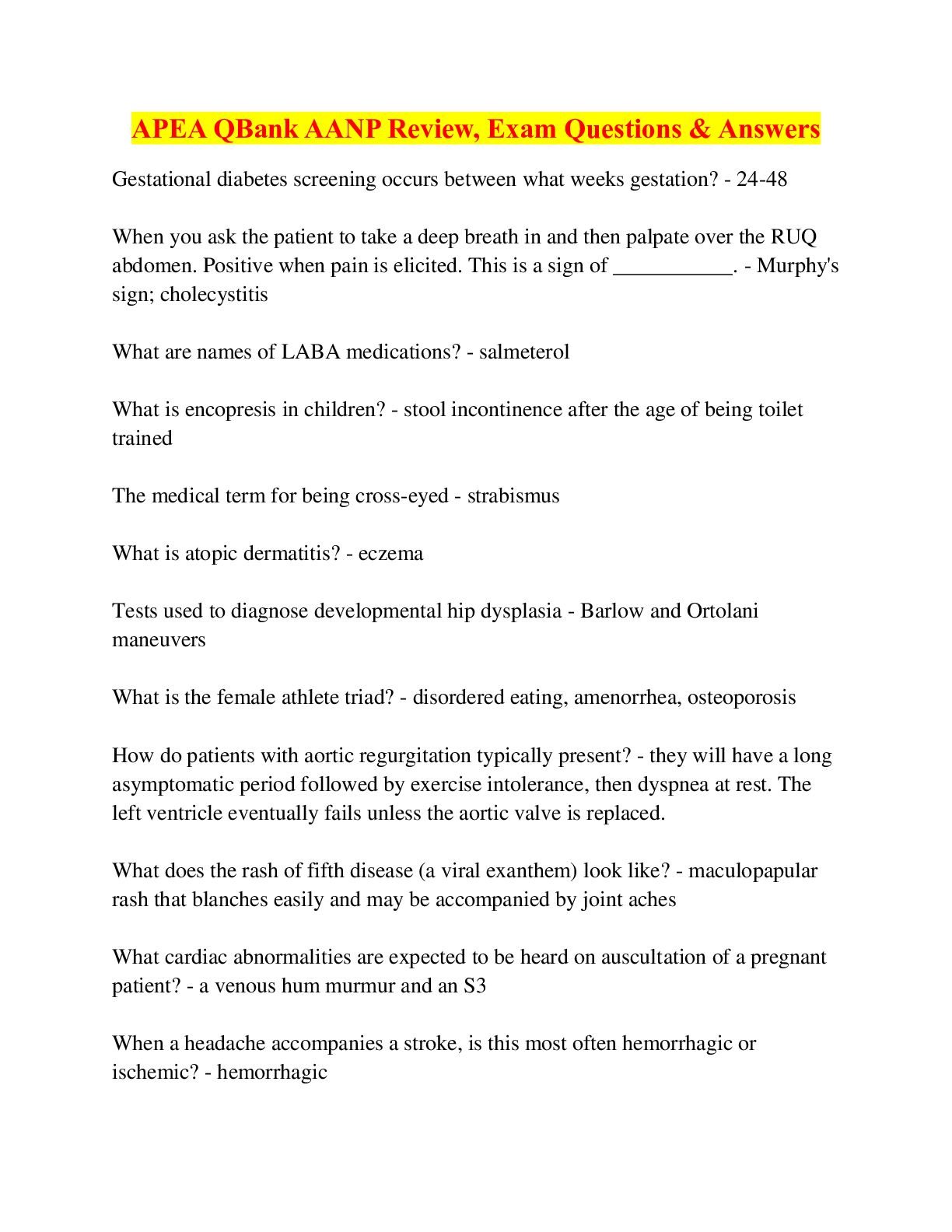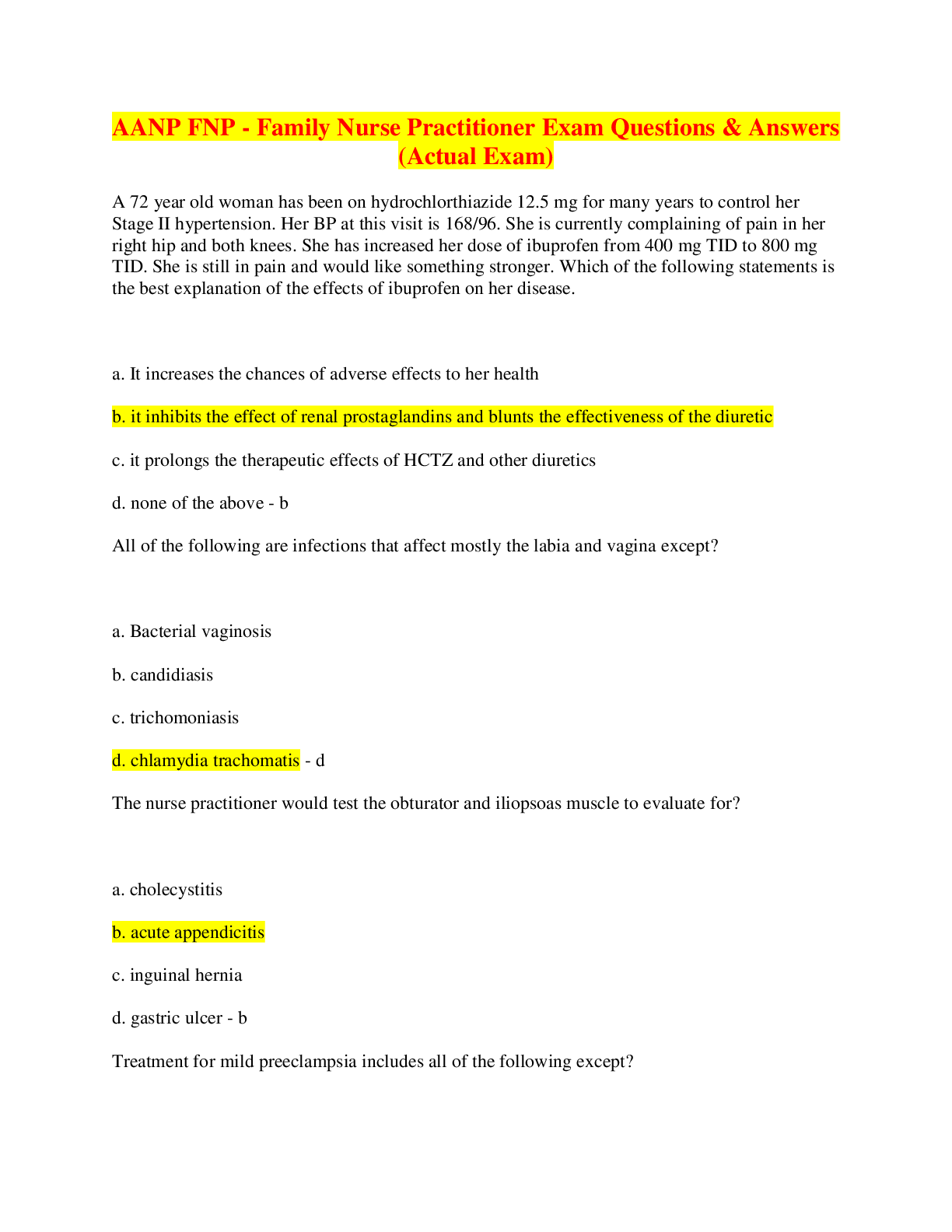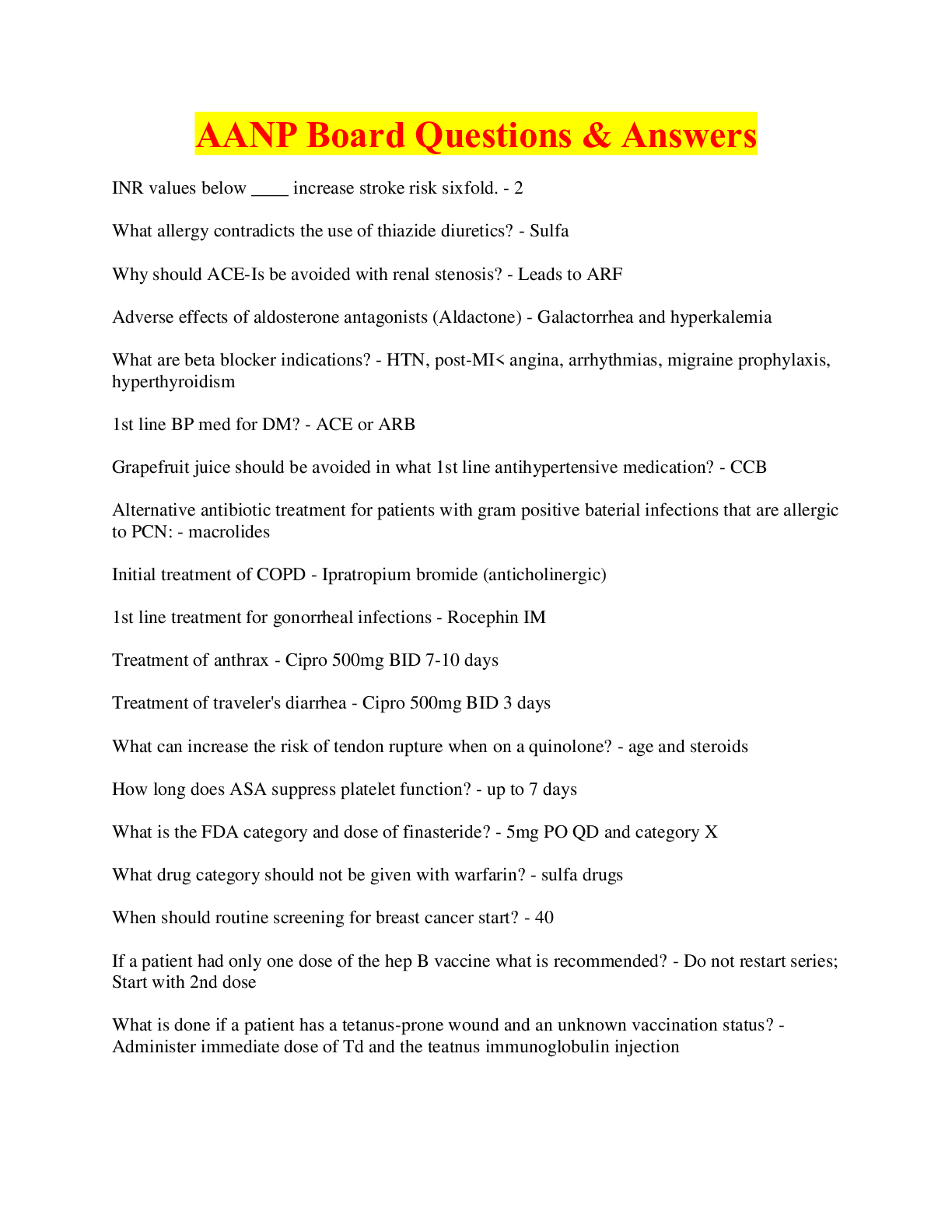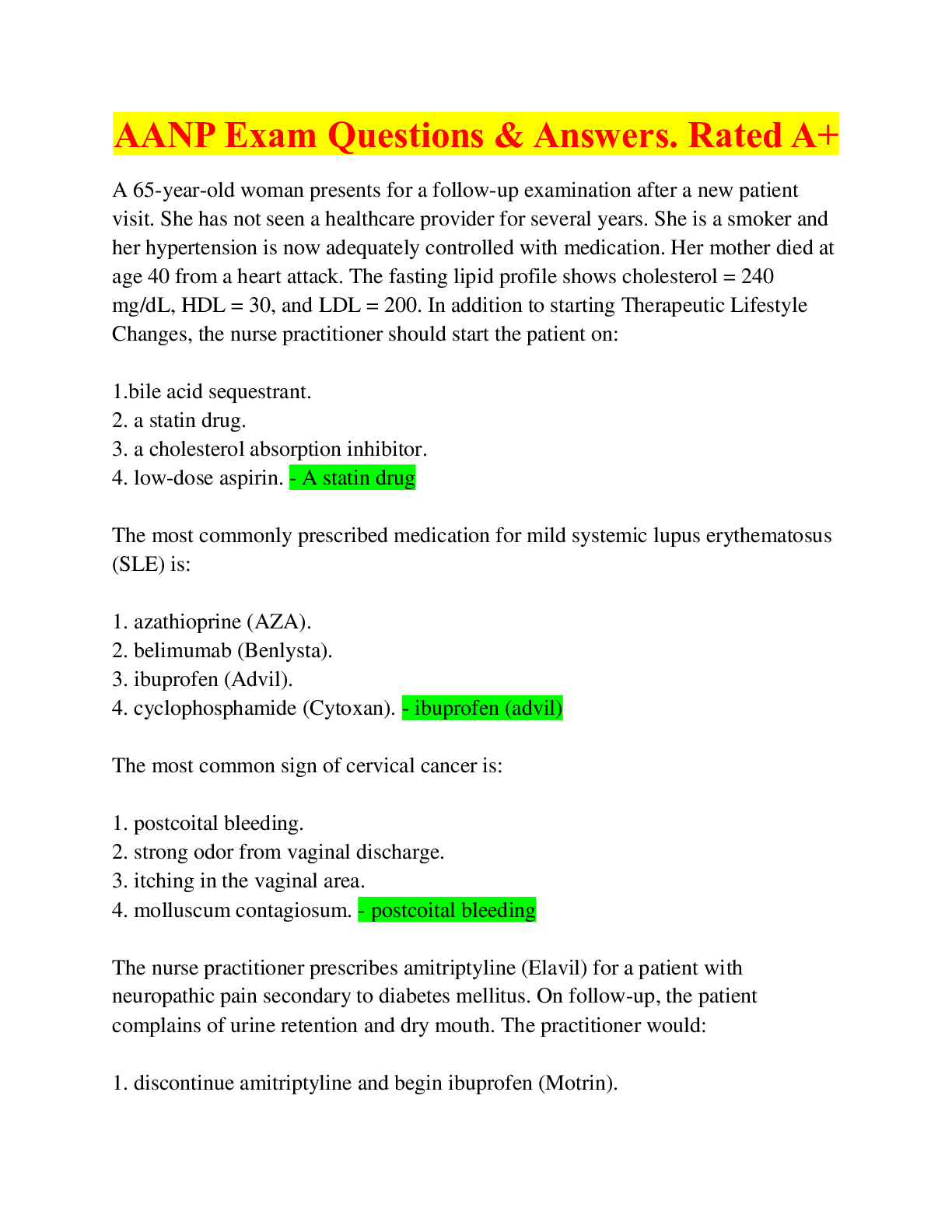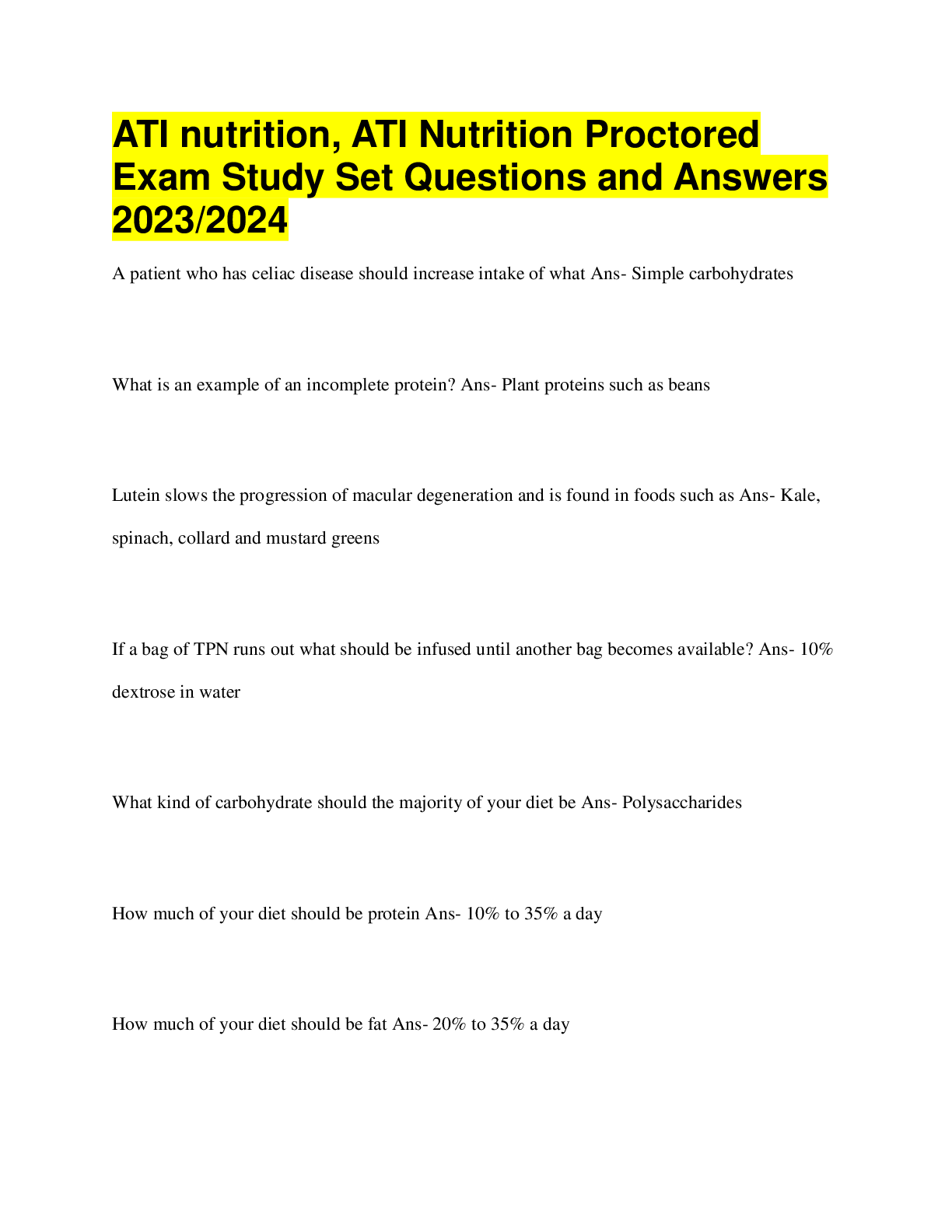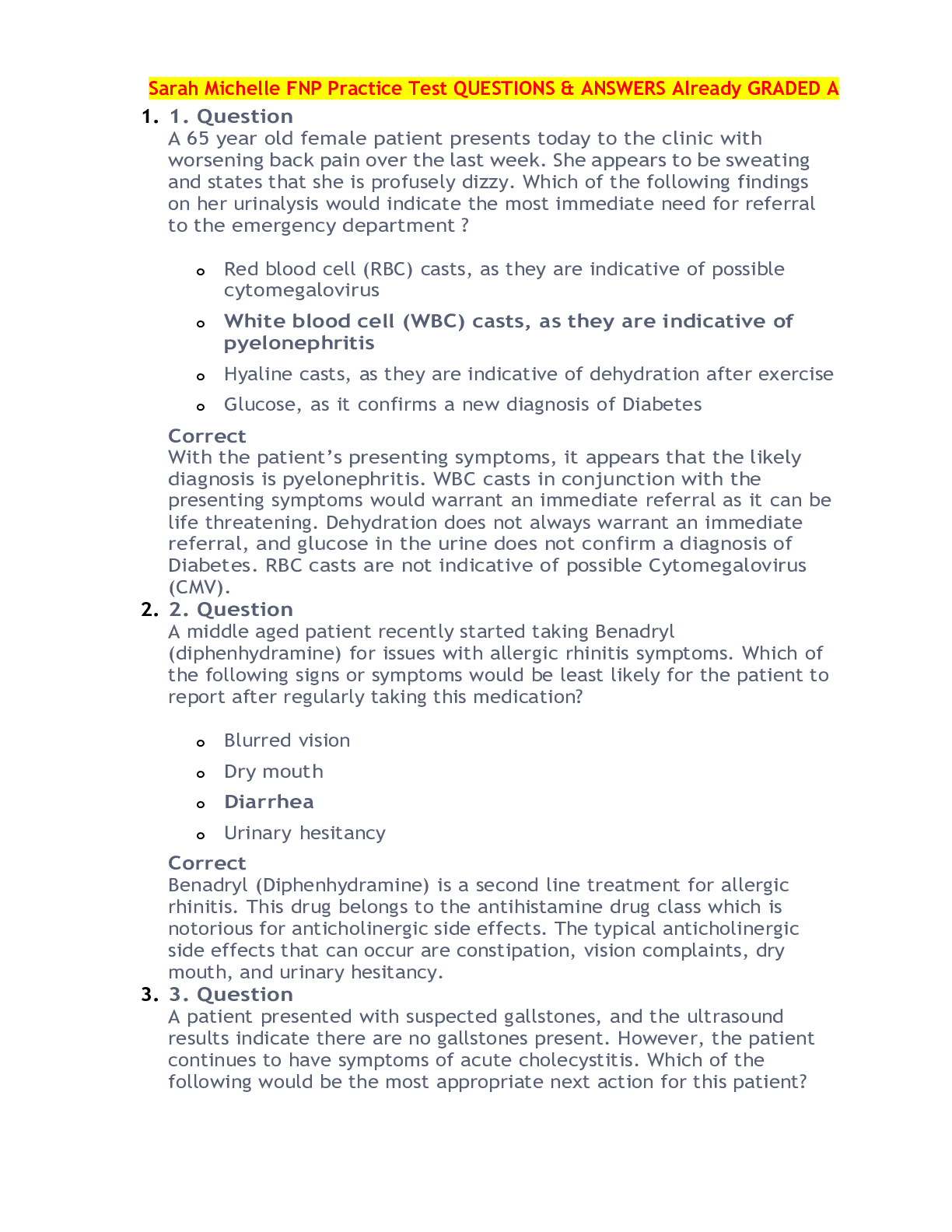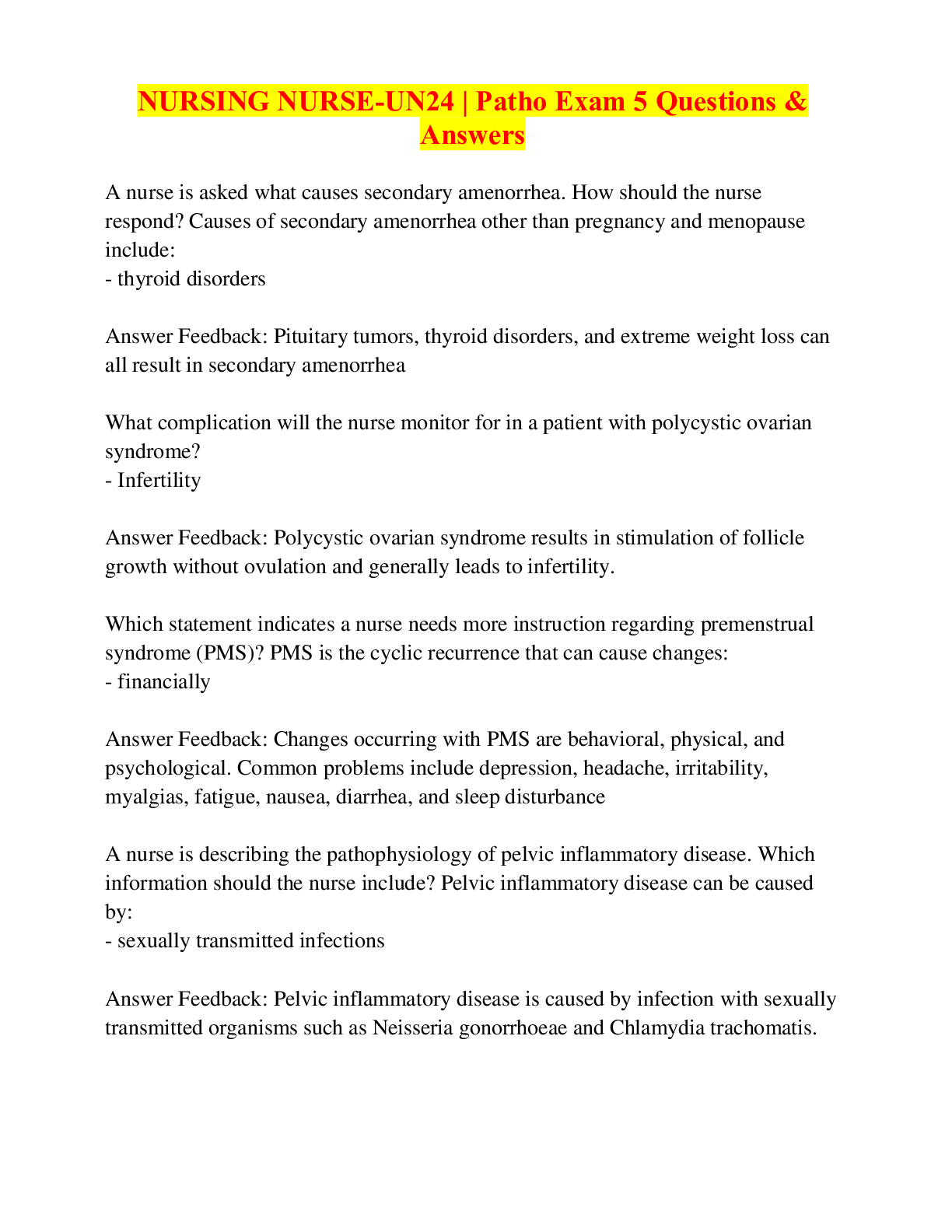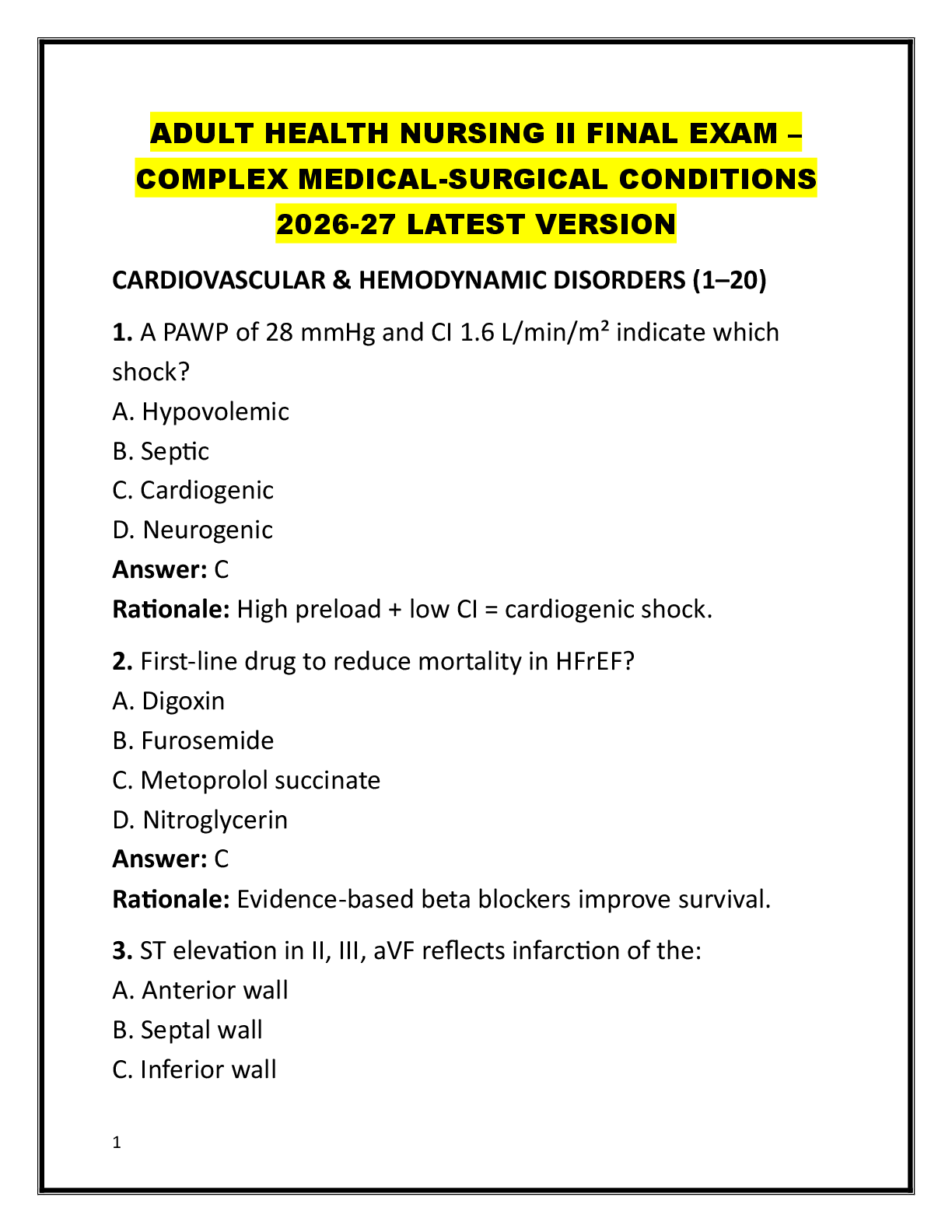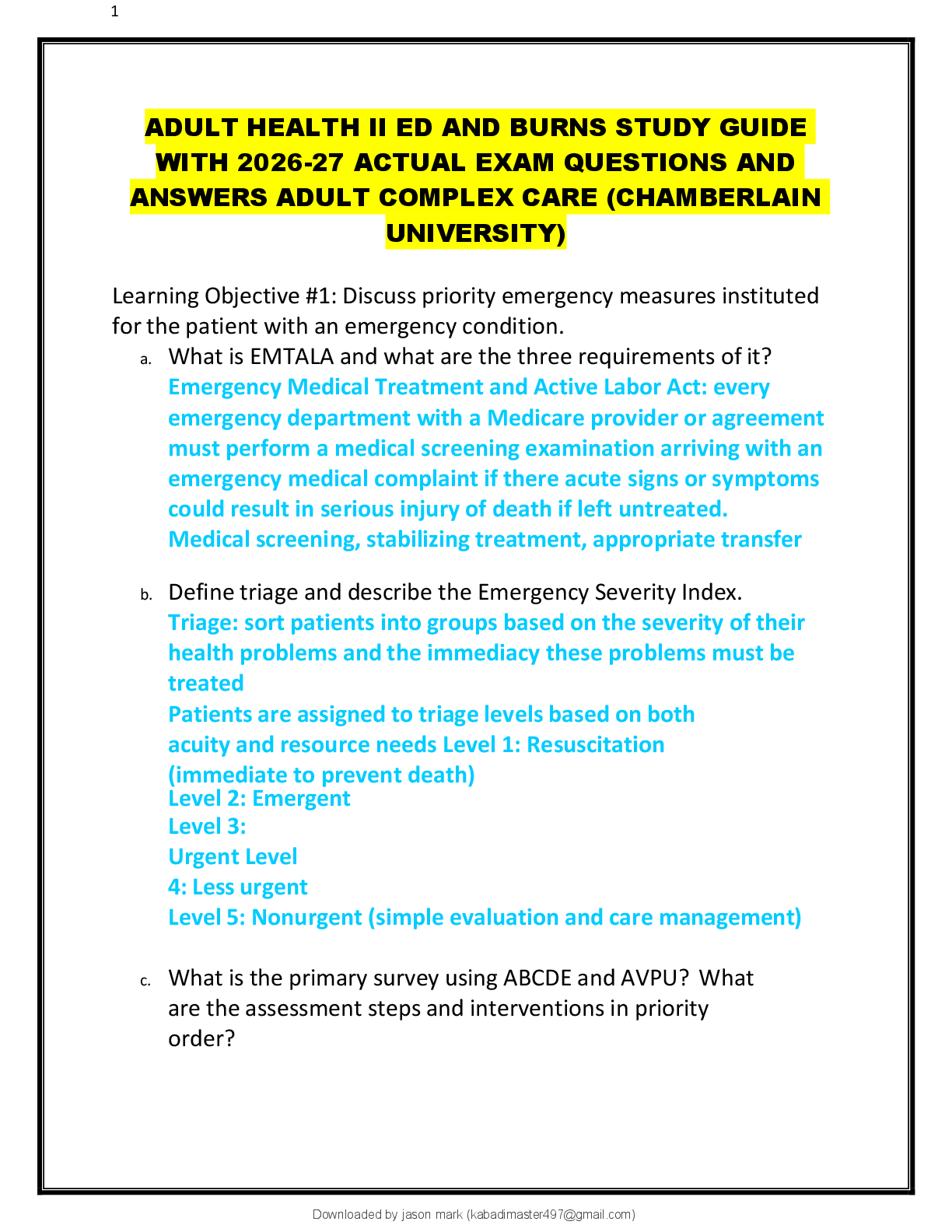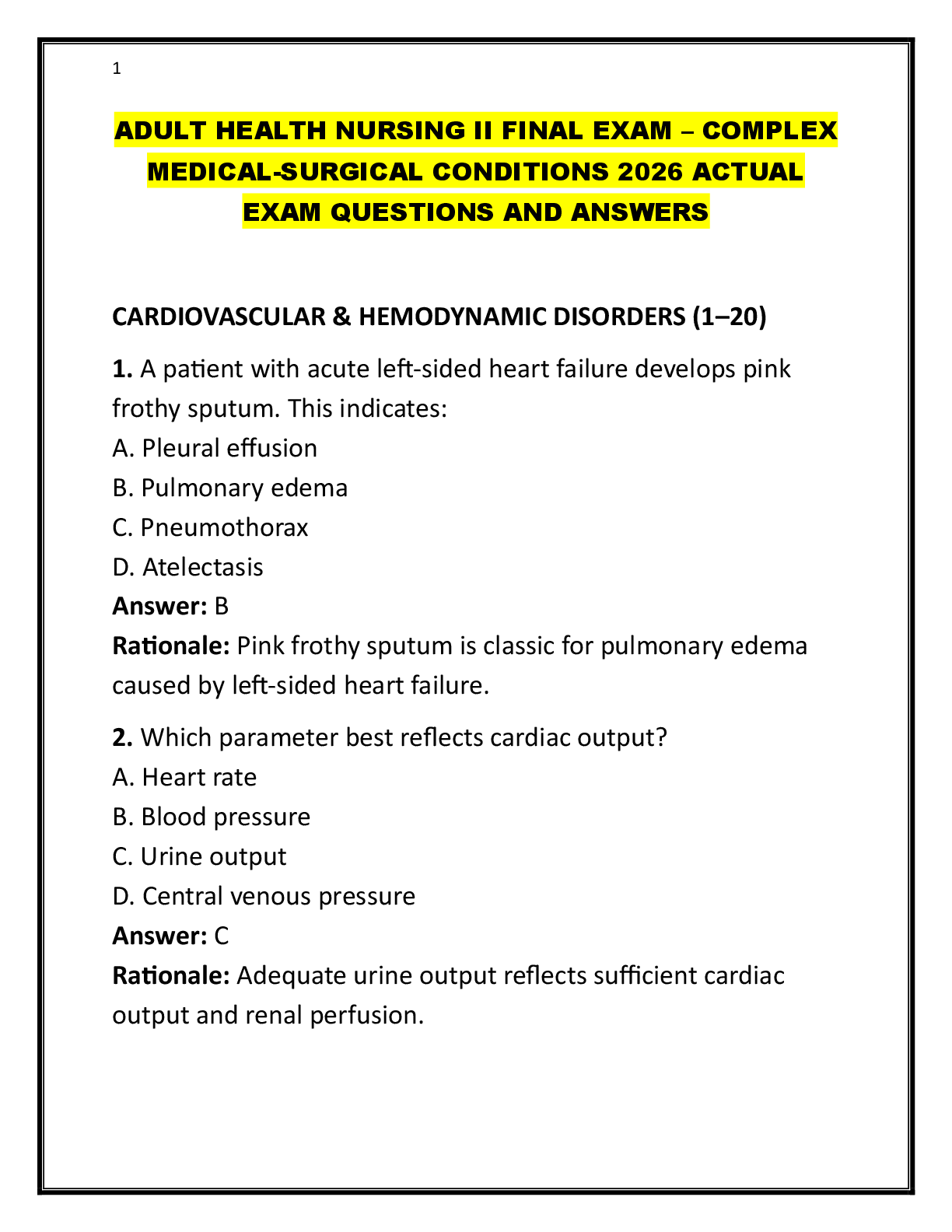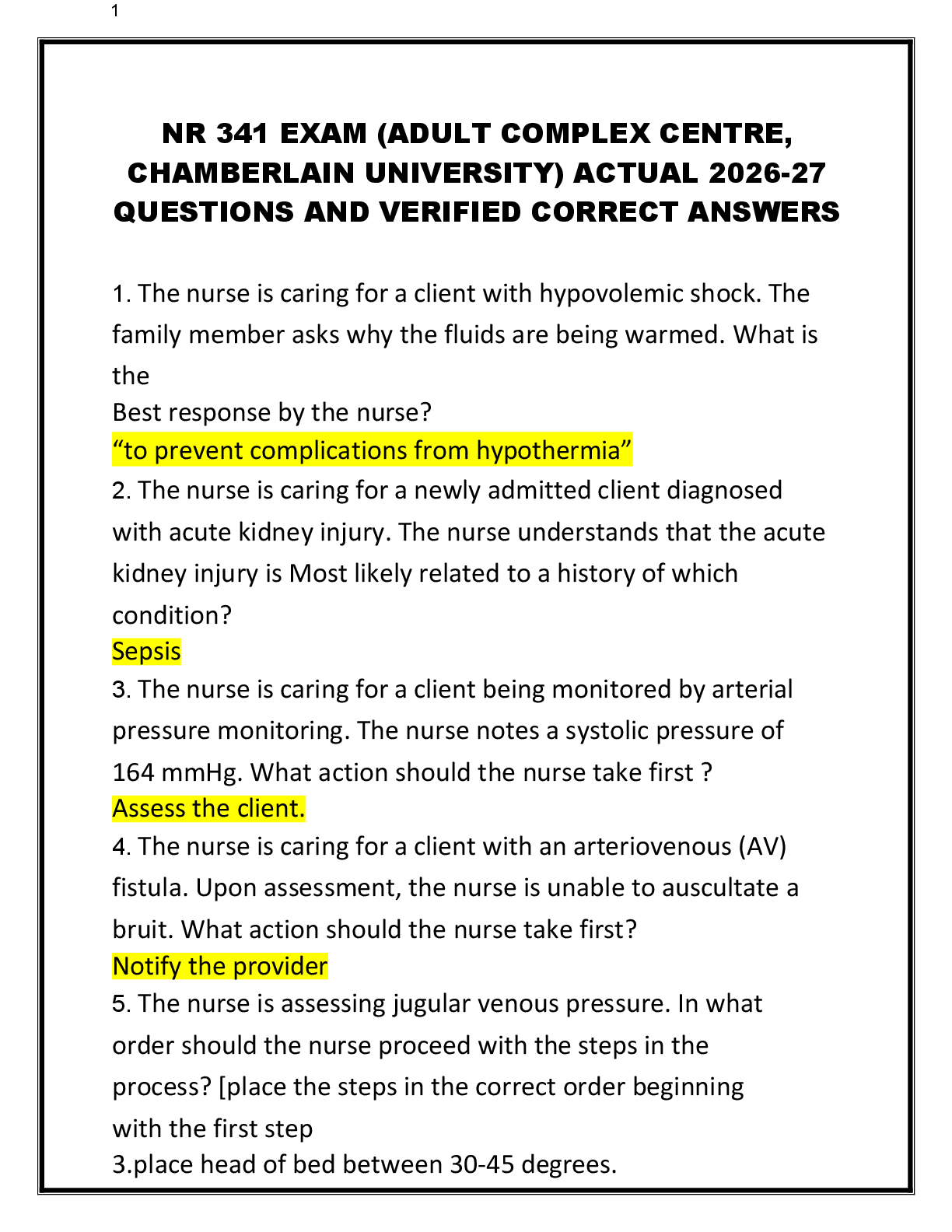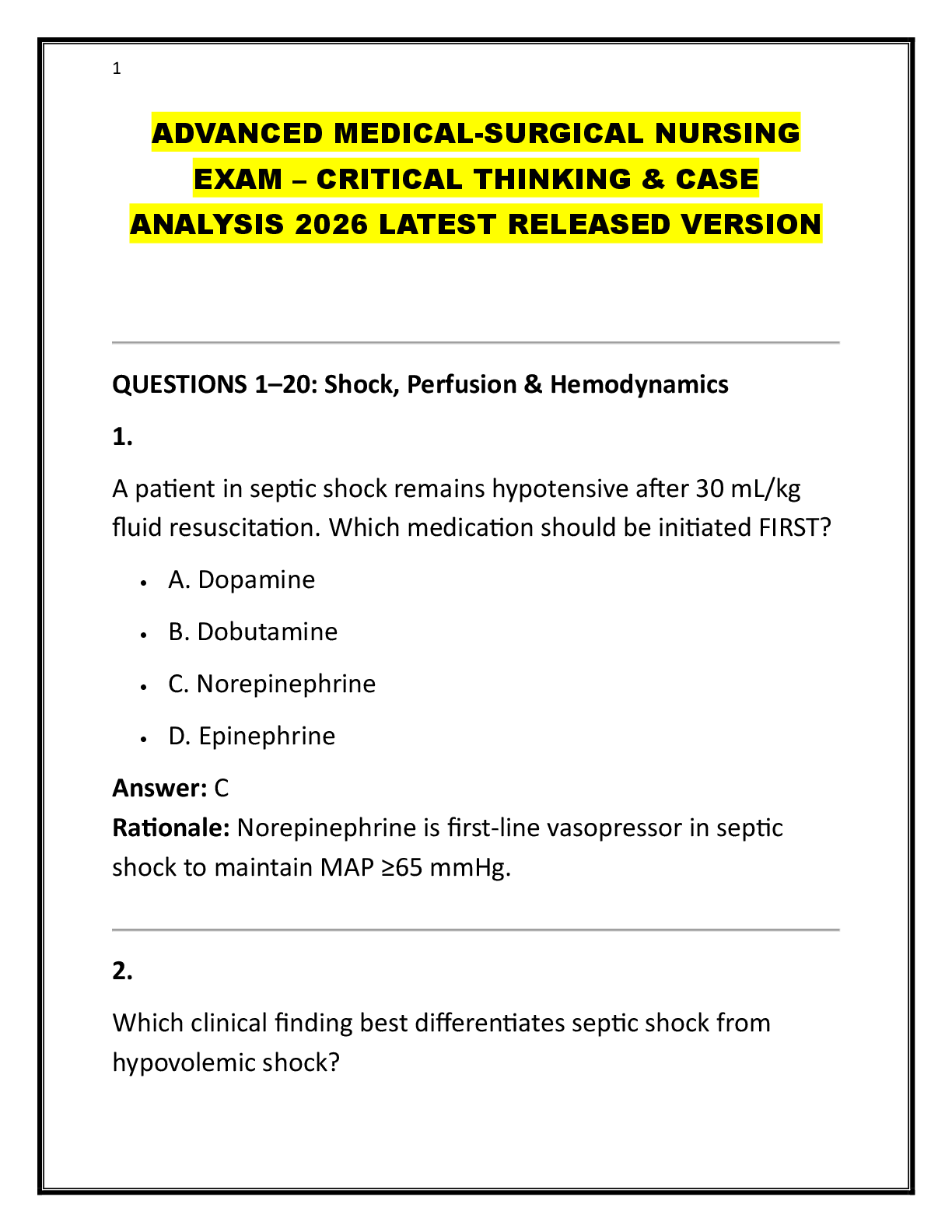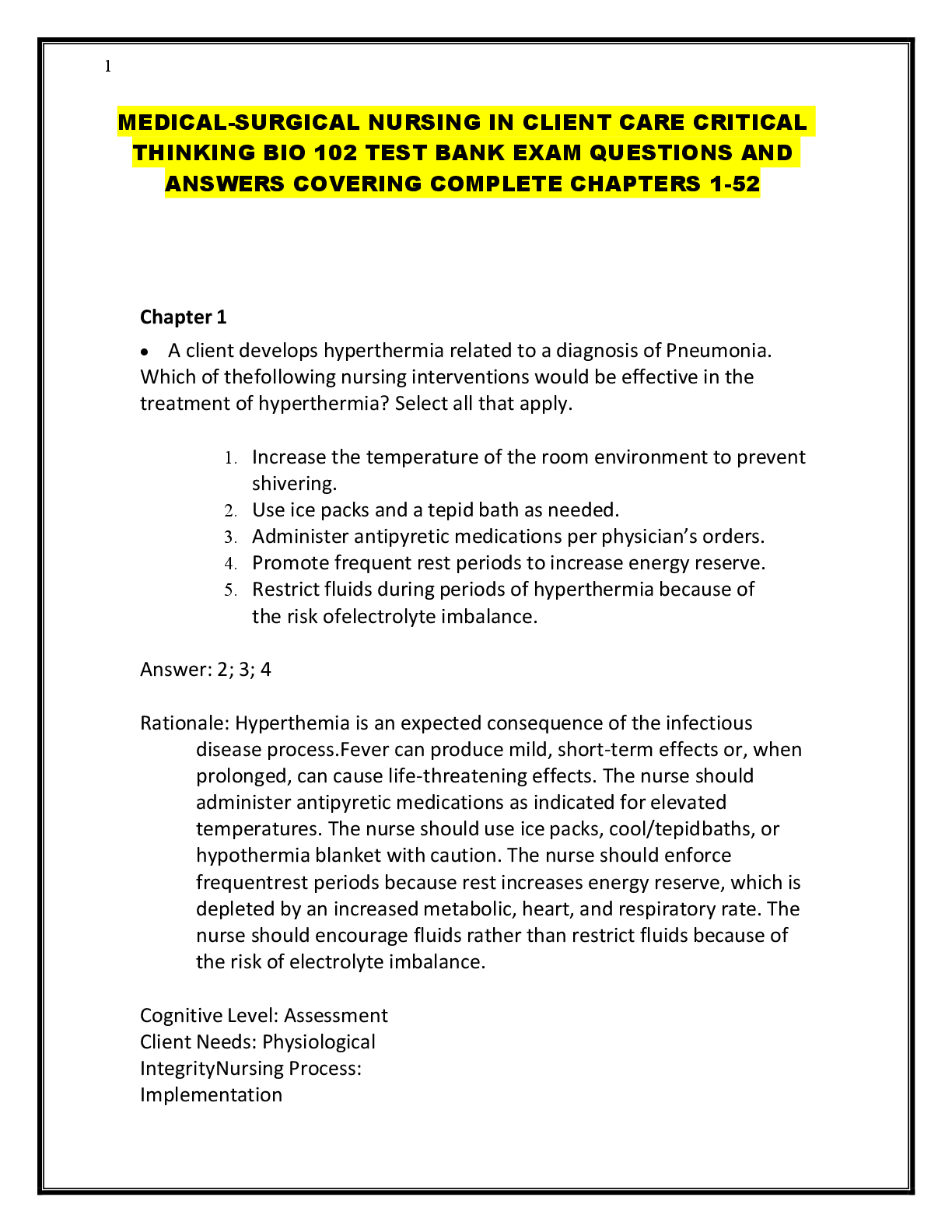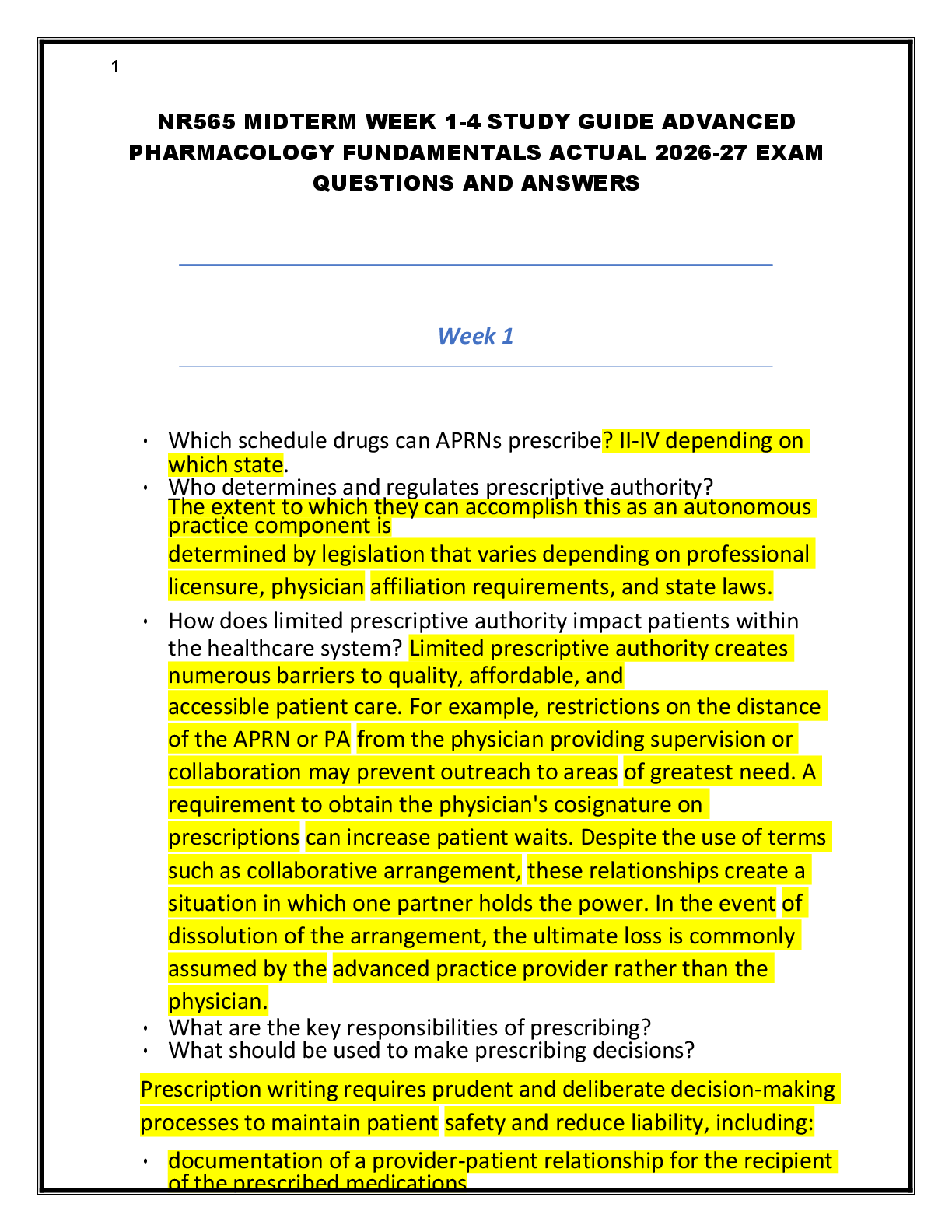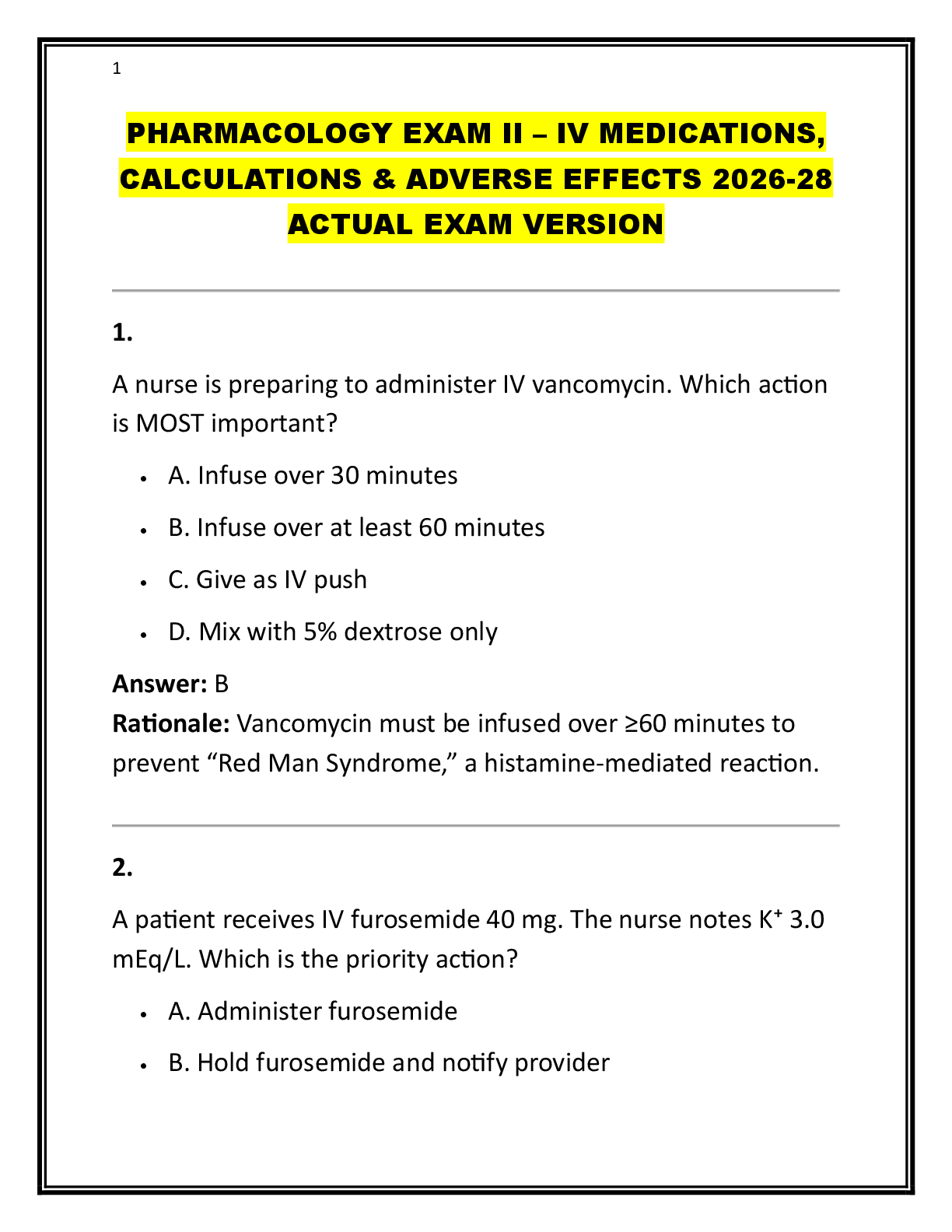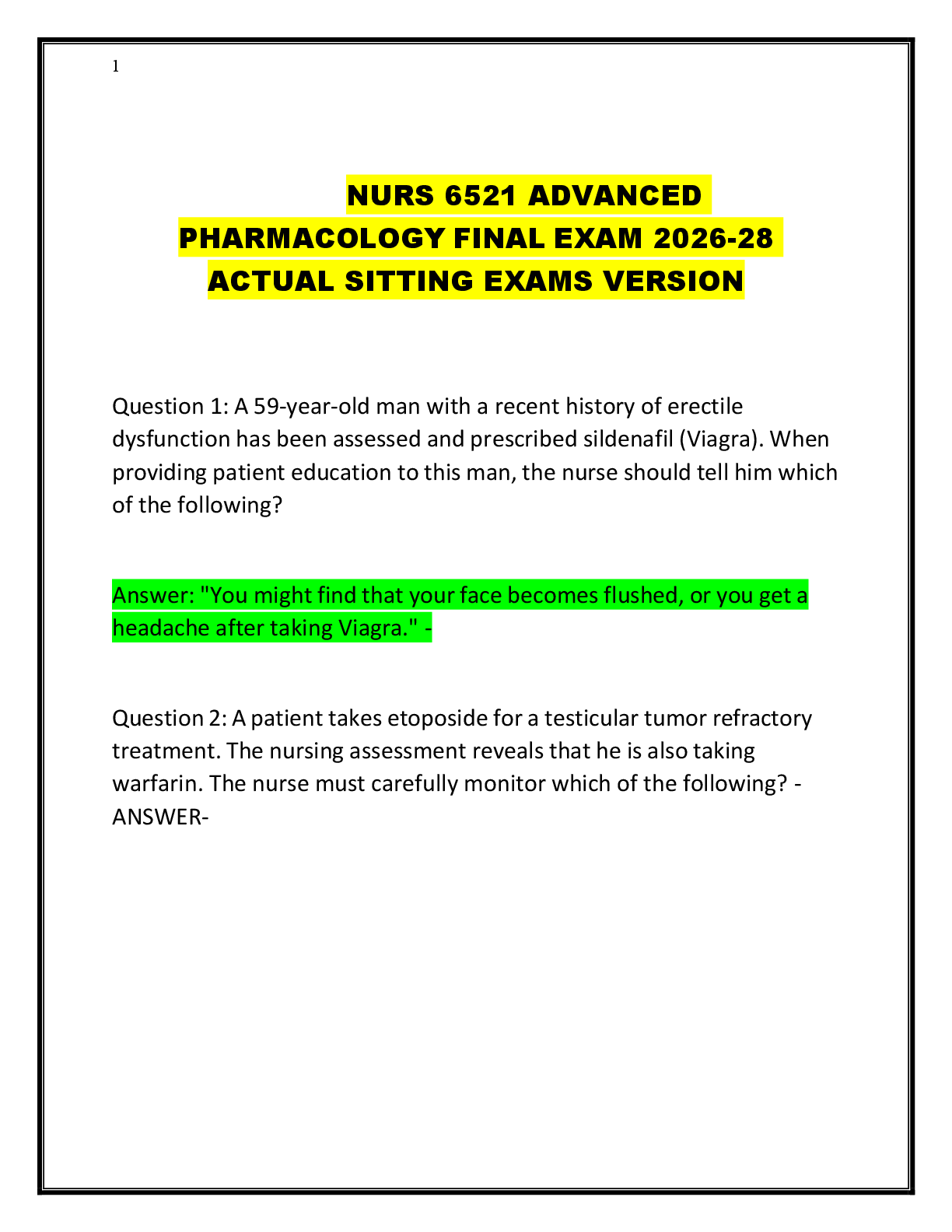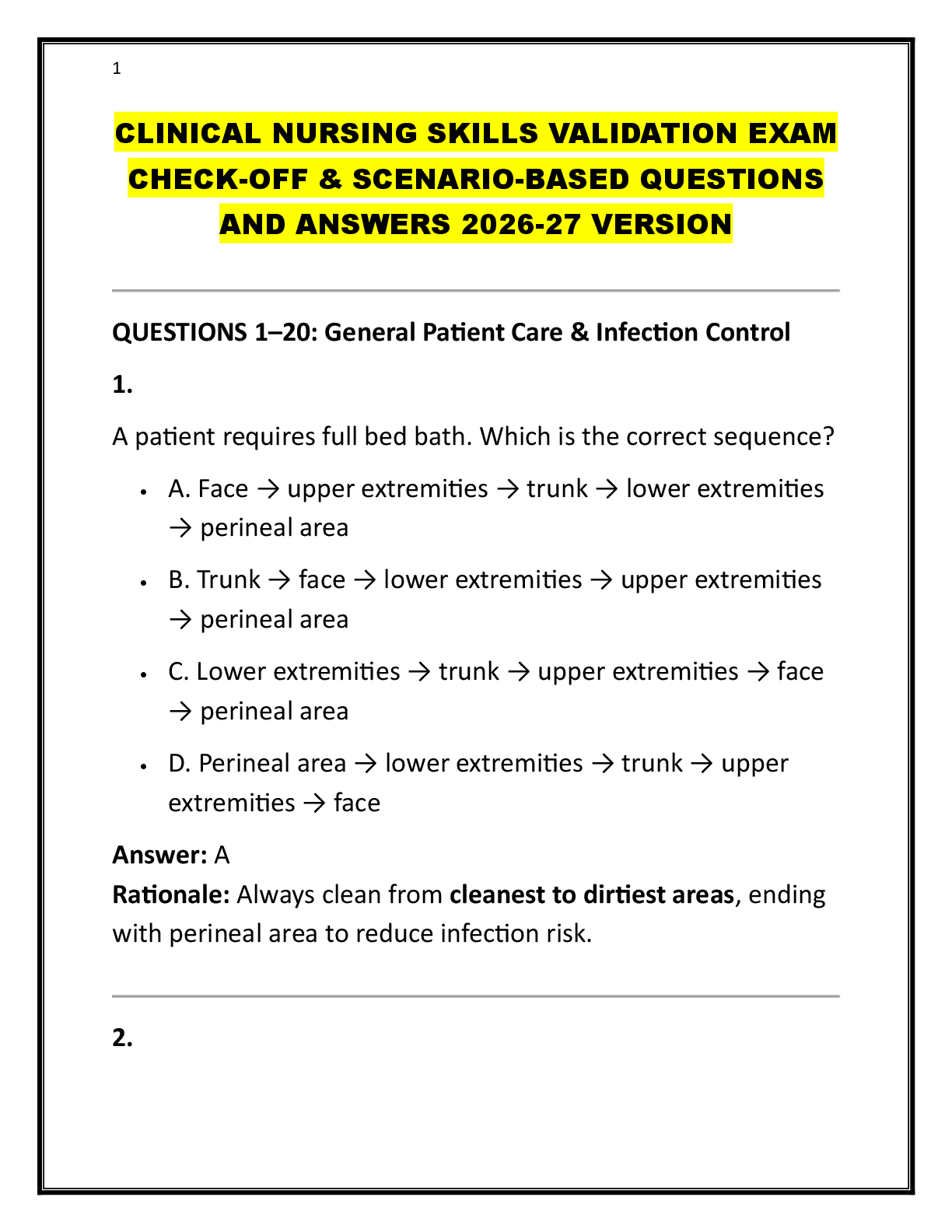Pathophysiology Exam 1 Practice Problems, Exam Questions & Answers-A patient is found to have liver disease, resulting in the removal of a lobe of his liver. Adaptation to the reduced size of the liver leads to _________
...
Pathophysiology Exam 1 Practice Problems, Exam Questions & Answers-A patient is found to have liver disease, resulting in the removal of a lobe of his liver. Adaptation to the reduced size of the liver leads to ___________ of the remaining liver cells.
A. Metaplasia
B. Organ atrophy
C. Compensatory hyperplasia
D. Physiologic hyperplasia - C
An older adult patient comes to the clinic complaining of not being able to do what he used to be able to. You know that normal changes associated with aging include: (Select all that apply.)
A. Improved blood flow
B. Slowed metabolic rate
C. Decreased brain weight
D. Improved nerve fiber conduction
E. Less respiratory capacity - B, C, E
A 20-year-old college student has presented to her campus medical clinic for a scheduled Pap smear. The clinician who will interpret the smear will examine cell samples for evidence of:
A. Changes in cell shape, size, and organization
B. Presence of unexpected cell types
C. Ischemic changes in cell sample
D. Abnormally high numbers of cells - A
The parents of a 4-year-old girl have sought care because their daughter has admitted to chewing and swallowing imported toy figurines that have been determined to be made of lead. Which of the following blood tests should the care team prioritize?
A. White blood cell levels with differential
B. Red blood cell levels and morphology
C. Urea and creatinine levels
D. Liver function panel - B
Lead -> anemia, RBC lysis
You know it's not A because there is no infection involved. C is focused on kidney function while D is focused on liver function. Both of these would be important in the case of lead poisoning BUT the priority answer is B, because you need first to address the most life-threatening patient needs. The little girl in this question can go into shock or suffer permanent organ damage if her RBCs are low.
A patient with severe peripheral vascular disease has developed signs of dry gangrene on the great toe of one foot. Which of the following pathophysiologic processes most likely contributed to this diagnosis?
A. Inappropriate activation of apoptosis
B. Bacterial invasion
C. Impaired arterial blood supply
D. Metaplastic cellular changes - B
[Show More]
